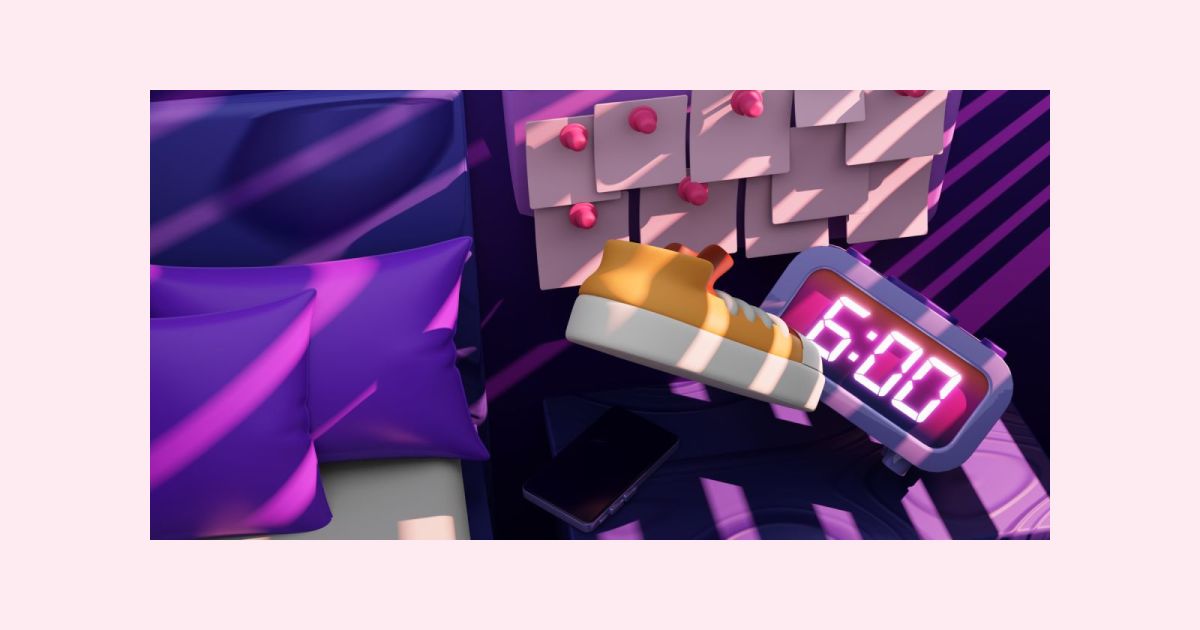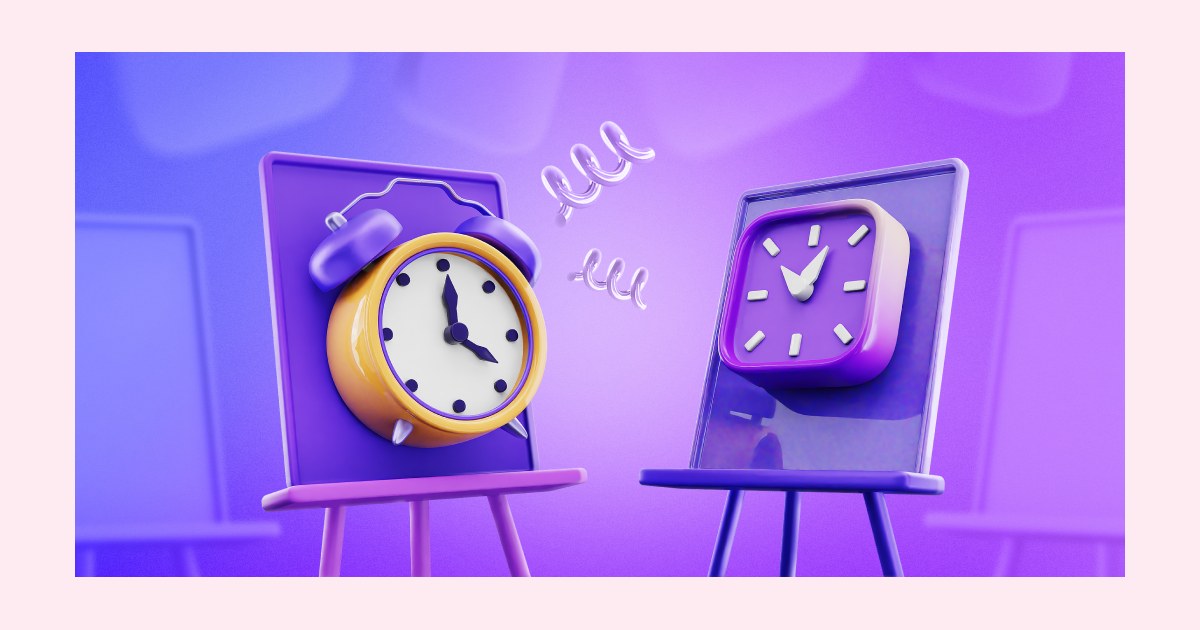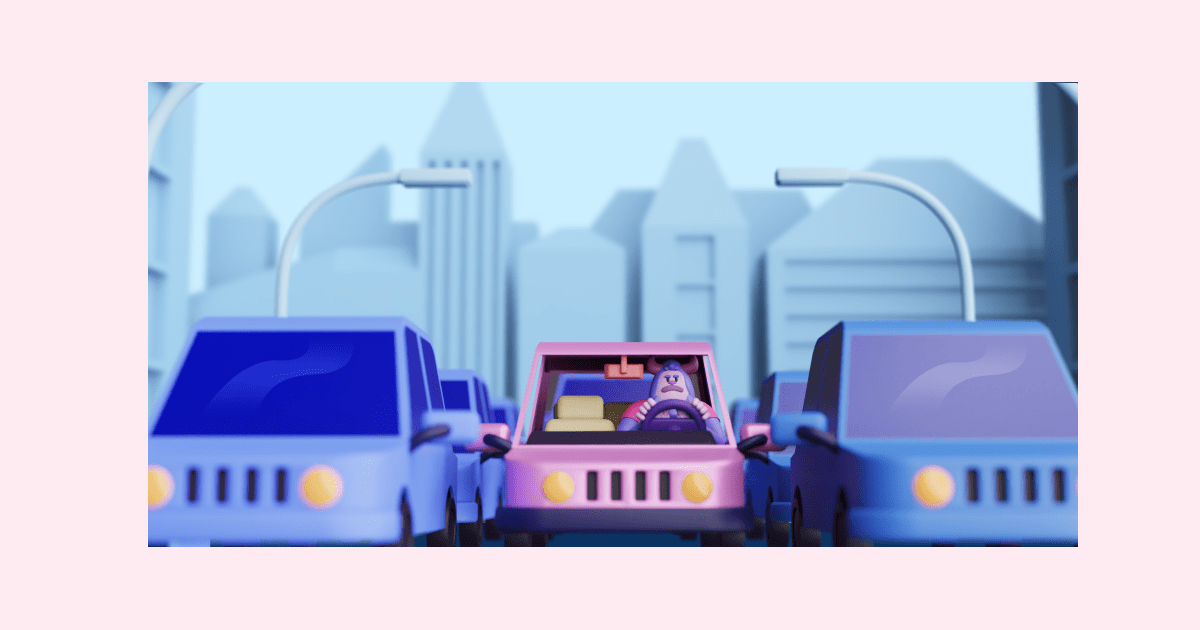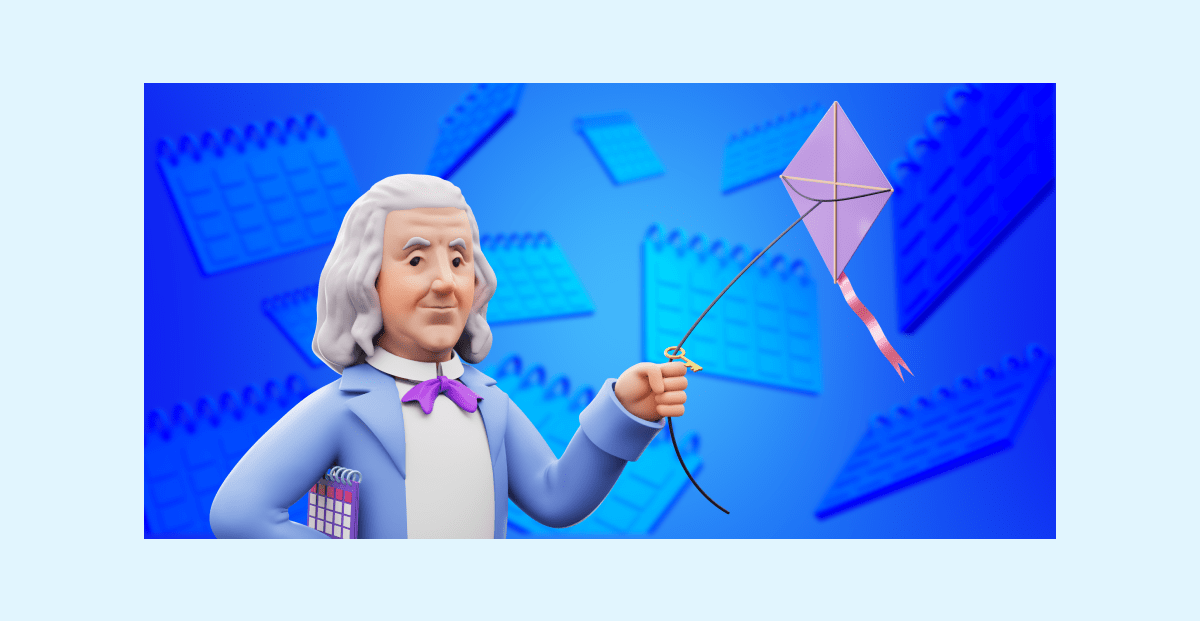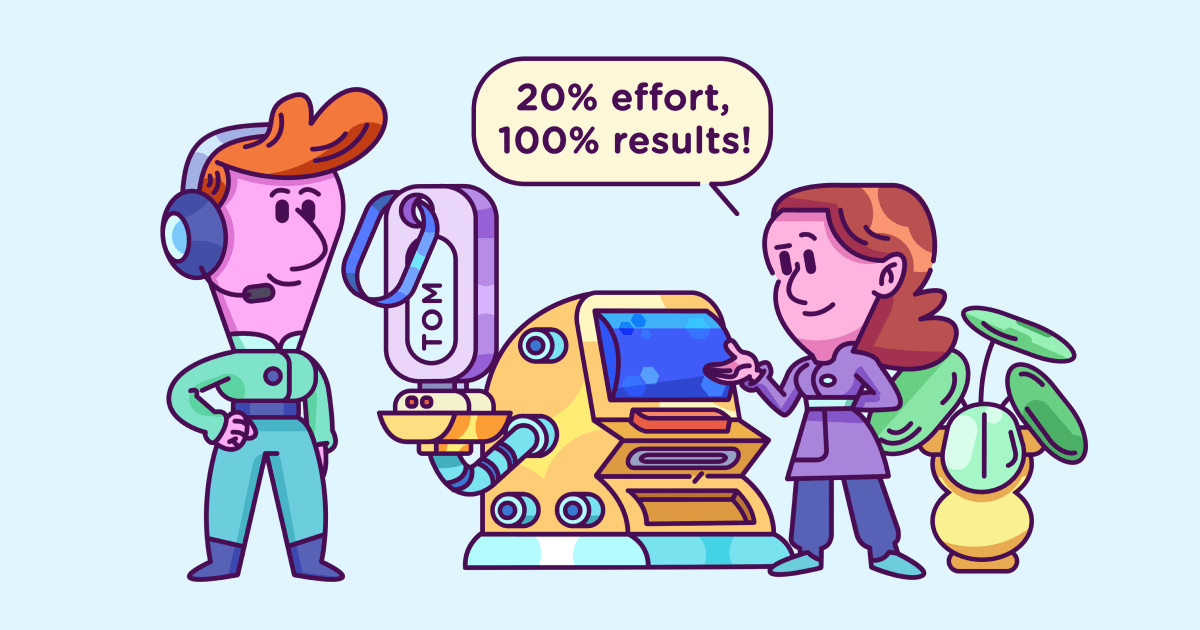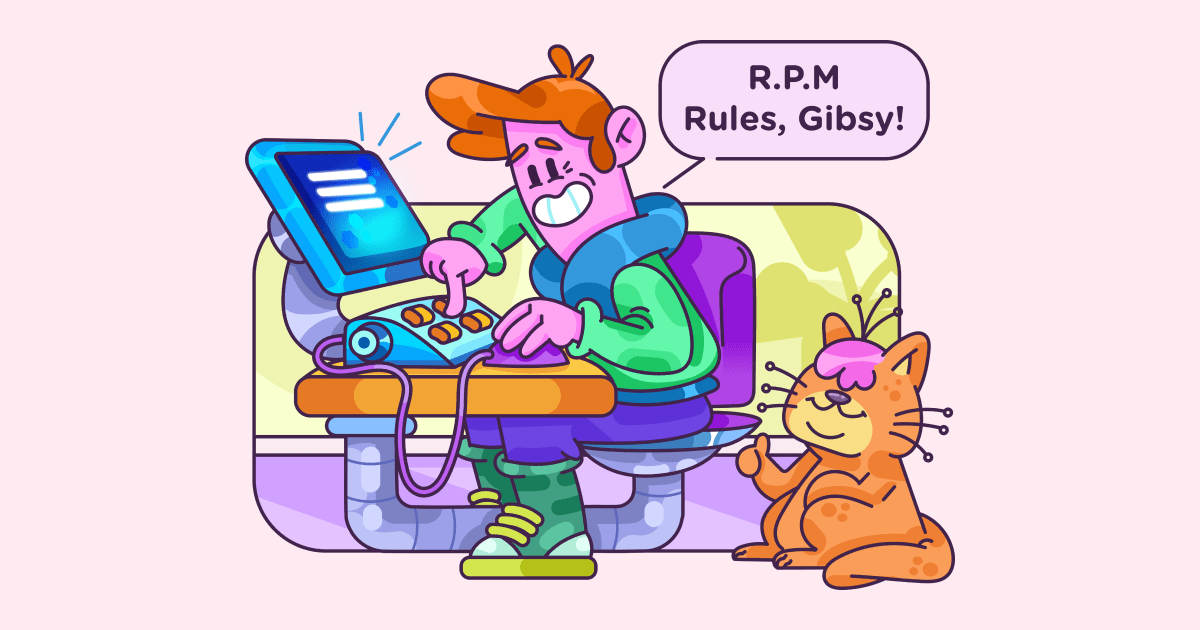Toxic productivity is the dark side of productivity: here’s how to recognize it
Last updated on: May 11, 2023
Productivity always was and will be a popular buzzword for every self-help author, coach, conference, and Instagram motivational page. And while we should strive to do our best at work, there is a fine line that separates productivity from its ugly twin that cakes itself in layers of motivational posters and quotes, conference talks and brochures, and motivational videos with handsome entrepreneurs. Toxic productivity is a rabbit hole from which there is no way out once you’re past a certain point. It becomes a one-way ticket to burnout, and you can only come out worse for wear.
So, let’s discuss it.
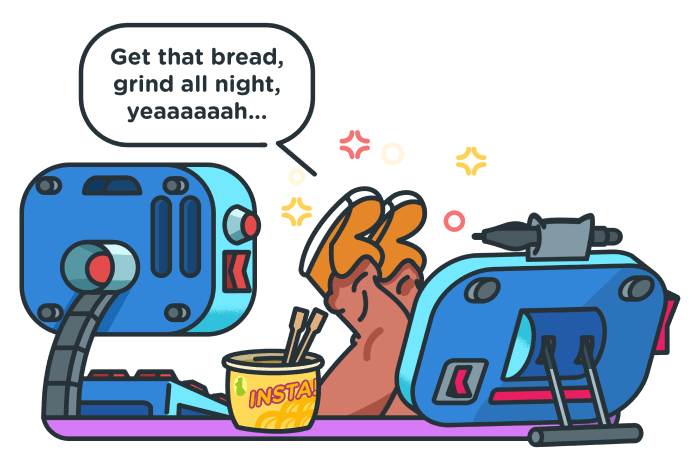
Table of Contents
How on earth can productivity be toxic?
We know that generally, being productive means we are working to our fullest potential, making strides in our career, and overall contributing to greater satisfaction with our lives.
However, productivity actually has its dark side that, unless we’re really cautious, easily steps in and gradually takes over our life. And it’s all because of the image of the ideal productive worker.
This article came about after watching one insightful YouTube video by user 1Dime called “Burnout Society”. In the video, they explore the idea of productivity, and how we’ve allowed ourselves to normalize workaholism. While the author focuses more on the implications this has on society as a whole, and how only companies, not employees, benefit from this hustle culture, their mention of toxic productivity really piqued my interest.
Toxic productivity will have you convinced that you are a bad worker unless you fulfill a very restrictive, single-track image of the ideal. And from there, it only has to sit back and watch you work yourself to the bone for the betterment of the company, chasing an unachievable ideal.
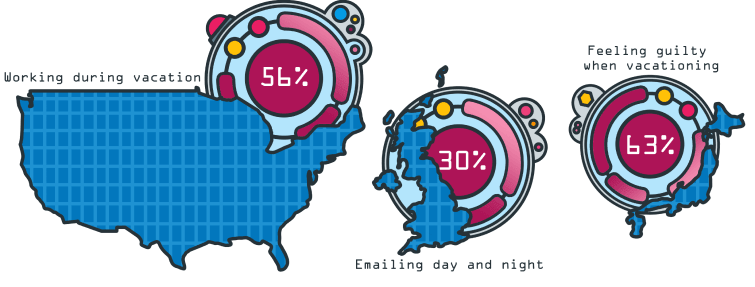
Source: Clockify.me
It can make you suffer for success
In the video, the author notices how suffering and fantasy go hand in hand to keep us working hard despite all the signs we need to hit the brakes.
Suffering for success — Phrases like “no pain no gain”, and “what doesn’t kill me makes me stronger” originally aimed to make light of difficult situations. But within hustle culture, they’re used to convince us that we can’t reach any progress without significant sacrifice. Thus getting us used to the grind.
Fantasy — Perpetrated by a lot of self-proclaimed life gurus, coaches, and loud entrepreneurs who “earned their first million” in a snap, usually reinforcing the idea of suffering first (e.g. surviving on ramen for a year to get his business off the ground which now makes them millions). This dream of one day ending our struggles and achieving success pushes us past our limits.
Together, suffering and fantasy create the ideal worker — one who keeps a single goal in mind and will stop at nothing to achieve it if they want to be happy and fulfilled. Toxic productivity thrives on those who can’t achieve this ideal. Because then they need self-help courses, books, YouTube videos, and coaches to achieve it. They’re convinced something is wrong with them.
Hence working to the bone, ignoring physical and mental burnout signs, and continuing to watch motivational talks to temporarily fix the problem.
What helps here is consciously approaching your habits and taking note of those that are big red flags your productivity has been “twisted”.
Signs that you’ve entered toxic productivity
Learn the signs before you’re in too deep and burn yourself out.
You feel guilty when resting or taking breaks
Follow your thoughts during break times.
How does your brain behave, so to say? Time how long it takes before the first question pops up: “Why are we on a break? There’s so much to be done!” An overly active brain urging you to get back to work during a 15-minute break is not a good sign.
Also, reflect on your self-talk. Do you live in the realm of “could”, “should” and “would”? In an interview we had with artist Katy Arrington some time ago, she shared that this kind of thinking and self-talk is hugely unproductive.
Bullying yourself into doing something or scolding yourself for not having done something only kills your drive moving forward. What’s more, it makes you miserable.
Anything not focused on work and growth is “a waste of time”
This is a symptom I had personally experienced, and it succeeded in eradicating my favorite hobby.
When starting my MA studies, the idea of having a full-time job to help my parents and become financially independent at 22 started to creep in. But, instead of motivating me to find what I would like to work as, the search became far more serious. I wanted to get the best paying job my education allowed, and it had to be something I would be proud of.
Already, I had in my head the image of the perfect productive job hunter, inspired by my fellow student friends who were also starting to get jobs. Anything less than what they had was a failure.
It didn’t take long for the search to overcome every other aspect of my life. I would catch myself 15 minutes into a drawing session, which was my favorite hobby, and asked myself if this is really going to help me get a job. I’m not going to be an illustrator, so… why waste time if I could practice translation or writing in that time?
And just like that, more and more, I would leave my drawing materials in exchange for doing temp work or perfecting my CV. And, by the time I had a job, my love for drawing had died. To this day I haven’t rediscovered it.
So, ask yourself if any of your hobbies or activities from personal life or passion projects had suffered because “they weren’t fruitful or profitable”? Once we start seeing our lives through that lens, it’s a huge sign to step back.
Relaxing becomes near impossible
Do you struggle shutting off your brain? Are you sleep-deprived? Do you play out scenarios, emails, and practice meeting notes as you lay in bed?
Or, like my father, do you take client calls at the beach during your vacation, because it’s “rude” to ignore them?
If a friend invited you to take a long walk to catch up, would you say yes without further planning? Or would you start wondering how you could use it as an opportunity to go grocery shopping, or check out that store you’ve been meaning to, or pick up dry cleaning… If this is the case, you definitely have a problem relaxing.
So, think of your end-of-workday rituals, and what they include. This can also be a dead giveaway on how easily you can or can’t disconnect from work.
Self-help books aren’t really…. Helping
I’ve personally been there. I would listen to so many TED Talks, and almost each one spoke to me. I found productivity-boosting Instagram pages, motivational quotes, and positively drowned myself in them.
I had no motivation or positivity in myself, neither could I “generate” it. So I turned to outside self-help resources as a daily injection of motivation. But, what a surprise — they didn’t work!
Months later, it became clear that the problem wasn’t me being unable to apply what they preached. It was my own insecurities and skewed perception of what productivity is and unlearning the idea that there’s just one type of productivity. For all we know, each personality type has a different one!
Examine how much media you consume to improve your productivity, and what percentage of it actually helps. Have they helped you make a work life you want to have? If not, then you’re simply banging your head against the wall, hoping to break it. Now would be a good time to reexamine what is the root cause of this.
You’re hooked to the feeling of accomplishment
The sense of accomplishment means more to you than the larger goals.
The simplest example is prioritizing small, easily manageable tasks on your to-do list, while leaving bigger tasks to the side. The rush of pride you feel having finished those smaller tasks can often overshadow the guilt over the larger ones.
And soon enough, you’ll be looking at how to convert your activities to get that sense of accomplishment. For example, you can find daily 40-minute walks boring, because they’re not inherently stimulating — so you download an app with rewards, or set an impossible goal for yourself.
While in moderation this isn’t harmful, giving every activity a goal that needs accomplishing makes you completely ignore the process. You stop enjoying the moment because it doesn’t lead to anything.
What to do if you recognize toxic productivity in yourself
If most of the above are true for you, then this problem should be looked into. Here are some starting tips on how to address toxic productivity, and of course, later seek out professional help.
Look for the root cause
Oftentimes, we’re lured into this neck-deep pool of toxic productivity because of an underlying issue. The most common culprits that trick us into getting in this pool are:
- Procrastination;
- Fear of failure;
- Desire to prove ourselves;
- Perfectionism;
- Low self-confidence, and
- Spite (yes, even spite! Like pursuing a career to prove disapproving family members wrong).
What can you do?
Well, it’s time you put away that box of colorful self-help band-aids.
While doing self-reflection is useful and a great practice in self-care, you should talk to a professional. Be it a licensed, legitimate life coach, or a therapist. They will equip you with appropriate methods to tackle this problem at the root.
Separate societal expectations from your own
While the root cause of toxic productivity is something within you, Social Media and our immediate surroundings are the amplifiers. Throughout the years, we’ve made it okay to work ourselves to the bone, in any aspect of our life.
We’ve successfully romanticized being overworked and sleep deprived as signs of a path to success.
Well-rested people who take their time seem like they don’t use the full potential of the life they’re given. That extra hour they could squeeze out if they just commuted faster, organized their email better, or used shortcuts on their PC.
Just like the 1Dime YouTube video from the beginning emphasizes — look at how Social Media and life coaches are portraying that ideal and thriving productive person. That is what society wants you to be, and what is best optimized for the economy. Not who you really are.
What can you do?
Take a notebook and a pen and write out the qualities the media has taught you make for a productive worker. Usually, it’s time efficiency, task management, eliminating distractions, spending less time on Social Media (ironically), etc.
Then, write out what you realistically can achieve with your skillset, limited time, and goals. We often push ourselves past the breaking point, without realizing it. And writing out these two columns may give you a much-needed outside look.
Practice doing less
Make yourself do nothing. Just like all other habits, this one will take time to get used to.
The toxically productive brain wants every action to have a purpose, otherwise, you’ve wasted time. So we want to combat that.
What can you do?
When you start browsing YouTube, for example, you may be tempted to use the time to catch up on your backlog of videos. Instead, type in the first thing that comes to your mind, that is completely useless to you. Like, “funny dog videos” for example, or “best 2021 movie trailers”, or find a review of that one movie you like. Make your brain accept that not everything you do has to have a purpose, aside from enjoying the moment.
You can do the same by picking up a magazine during your break instead of going through emails. Or just making coffee or tea in silence, without a phone in your hand.
Practice gratitude
Toxic productivity feeds on our feeling of not being good or productive enough. That everything we have in life needs to be earned with grueling hard work, or constant investment. And in that negative self-talk, we forget that simply existing in this world is a big achievement. Navigating through the complexities of daily life is demanding already.
What can you do?
Practicing daily gratitude is one of the few anxiety-riding methods that worked wonders for me.
The idea is to keep a simple notepad by your bed, and at the end of each day, write three things you’re grateful for. It can be the same three things, like your partner, a pet, your career so far, or even that morning coffee from your favorite place. Or, you can try to pick out different nice things each day, and teach yourself how to slow down and pay attention to the small things that make you happy.
It’s a great practice in taking a break to appreciate what you already have. And also, to remind yourself of things that are important in your life.
List things that are important to you
What aspect of your life do you hold as most important? Refocus your energy in that direction.
Whether you want to be a better parent, secure your kids’ future, or work toward starting a family, these three alone will have three different paths. Discern precisely and clearly what it is that you want with your life in the next 5-10 years, and how you can achieve it.
What can you do?
Simple as that — make a list. Do you want to make improvements in your personal life, career, health, hobby, or a long-lost passion?
Use that as guidance in making more detailed plans. If you want to become a writer, but you’re now neck-deep in programming, then this can help you carve out a path towards the goal you really want to achieve.
Look for your purpose or reconnect with it
Erika Ferszt is a former senior advertising executive, now a personal coach and founder of Moodally. A trip to the hospital caused by stress-related temporary blindness pushed her into a career change. Far from it that she hated her job — Ferszt realized then and there that her strong work ethics and energy were misplaced. When asked in an interview what piece of advice she would give her younger self, she claimed she actually appreciates all her mistakes and lows, because they brought her to where she is now. However:
“One thing I’ve always felt, but perhaps wasn’t able to articulate until recently, is that you must stay true to your vision and purpose. The more you allow your purpose to be real for you, the better guided you will be in your choices and you’ll see better results. Where your purpose lies is where your passion lies, and vice versa. I know from my time in personal coaching that many people struggle to identify their purpose and, truthfully, it isn’t until later in life that we may understand why we believe we’re here on this planet.”
Ferszt, however, adds that you shouldn’t ask: “What am I supposed to do with my life”? As she claims, this question is restrictive. It doesn’t let your mind open up for all possibilities, and always weirdly associates your “supposed to’s” with your work life.
What can you do?
Instead, Ferszt says you should ask: “What impact do I want to have?”
This question helped her come to the career she has today, and feel more fulfilled than ever. Ask the same question to see what activities in your personal life and career are or aren’t actually contributing to that purpose. This makes it much easier to cut out only that which wastes your energy.
Conclusion
Toxic productivity is a persistent phenomenon that few of us will be aware of, unless we start to suffer serious consequences (burnout). Sadly, most will reconsider their work habits only through experiencing these health side effects that hustle culture brings. To ensure you don’t end up in a hospital, regretting every choice you’ve made, it’s vital to reexamine what your life is like right now. Ask yourself whether your focus is in the right place, if your expectations are painted by rose-tinted productivity ideas, and aesthetic YouTube videos of seemingly highly productive individuals. It’s time to take a realistic look at how and why you work, to see if your energy is in the right place.
✉️ What are your thoughts on toxic productivity? Share with us any comments, or experiences you have at blogfeedback@clockify.me.
